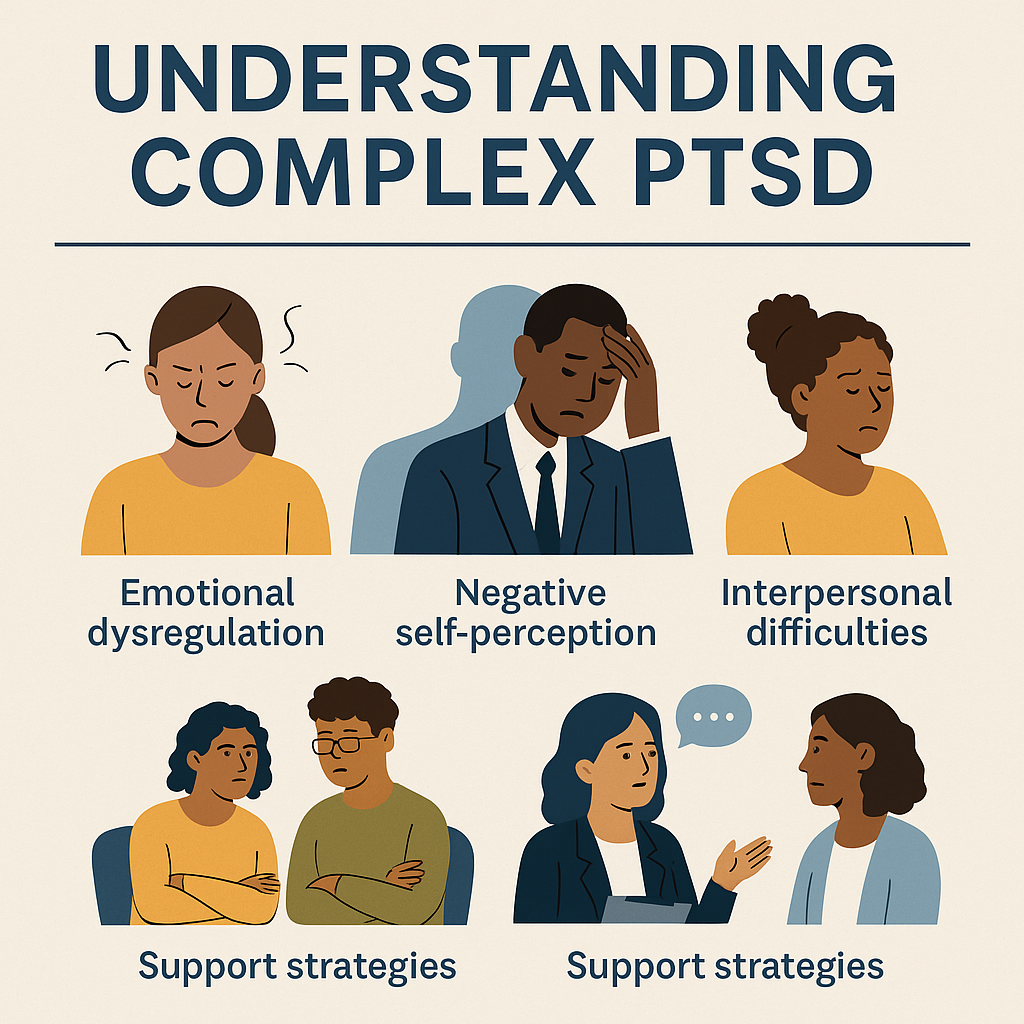Website designed with the B12 website builder. Create your own website today.
Start for free
Most people are familiar with post-traumatic stress disorder (PTSD)—a condition marked by flashbacks, anxiety, and hypervigilance after a traumatic event. But what happens when the trauma isn't a single event, but a repeated pattern over months or years? That’s where Complex PTSD, or c-PTSD, comes in.
c-PTSD is a relatively newer diagnosis recognized by the World Health Organization's ICD-11 (but still not officially listed in the DSM-5 in the U.S.). It typically develops in people who have experienced prolonged, repeated interpersonal trauma—especially when escape wasn’t possible. This includes survivors of childhood abuse or neglect, domestic violence, human trafficking, prolonged medical trauma, or captivity.
Unlike PTSD, which centers around fear responses to specific events, c-PTSD involves long-term disruptions to a person's sense of identity, self-worth, emotional regulation, and interpersonal trust. In short: it's not just about what happened, but how that trauma reshaped a person’s entire internal world.
While c-PTSD shares many symptoms with PTSD—like flashbacks, nightmares, avoidance, and heightened startle response—it adds several more complex and deeply rooted challenges:
Living with c-PTSD can feel like you're constantly navigating an invisible battlefield. Triggers are often not obvious—like a tone of voice, a certain smell, or even a look—and can evoke overwhelming emotions. Many people struggle with holding down jobs, maintaining relationships, or simply feeling safe in their own skin.
It’s not unusual for c-PTSD to be misdiagnosed as borderline personality disorder, chronic depression, generalized anxiety, or even bipolar disorder. While there may be overlap, what sets c-PTSD apart is its origin in chronic trauma and the way it affects core identity and relational patterns.
The good news is that c-PTSD is treatable. Healing is absolutely possible—but it often requires more time, patience, and a trauma-informed approach that respects the survivor’s pace.
Here are some evidence-based strategies and therapies that can support recovery:
If you know someone living with c-PTSD, your understanding and support can make a world of difference. They may not be able to explain what’s happening—or even recognize it themselves. Be patient. Don’t force conversations. Offer safety, consistency, and above all, empathy.
Avoid saying things like “Just get over it” or “That was so long ago.” Trauma doesn’t obey a timeline. Healing from c-PTSD is more like learning to live in a new world—with new tools and gentler expectations.
Complex PTSD is not a sign of weakness—it’s a natural response to unnatural, prolonged stress. Those who live with it are some of the most resilient individuals you’ll ever meet.
As a mental health professional, I encourage anyone who sees themselves in this post to take the next step—whether that’s speaking to a therapist, exploring resources, or simply acknowledging what you’ve been through. You deserve healing, peace, and a life not ruled by the past.